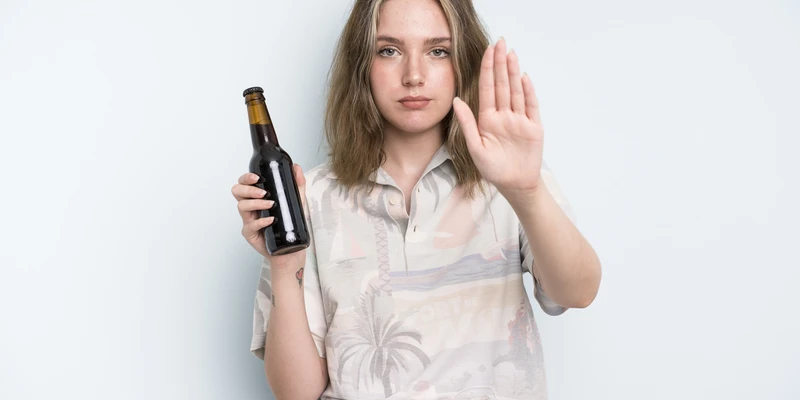
Dra. Emma Collins
Clinical Psychiatrist & Medical Detox Specialist
DBT for Substance Use Disorder helps people who are struggling with addiction and intense emotions by teaching practical skills training to manage urges and improve daily functioning. This approach supports change through techniques like mindfulness, emotion regulation, and distress tolerance.
Many people benefit from its methods and structure, especially when substance use is linked to underlying emotional patterns. With clinical guidance, DBT therapy offers a reliable way to support recovery and reduce relapse risk.
Understanding DBT for Substance Use Disorder
Dialectical Behavior Therapy (DBT) is a therapeutic approach that helps you manage addiction by teaching DBT skills for emotional and behavioral regulation.
What is Dialectical Behavior Therapy (DBT)?
DBT is a type of cognitive-behavioral therapy developed to support individuals who experience intense emotions and struggle with impulsive behaviors. It combines individual therapy, skills training groups, and phone coaching to address patterns that may contribute to substance use.
DBT operates based on four modules, namely, mindfulness, distress tolerance, emotion regulation, and interpersonal effectiveness. These areas work together to help you increase awareness, manage reactions, and improve relationships. DBT is often used when substance use is associated with emotional pain, self-destructive behavior, or co-occurring mental health disorders.
How Does DBT Work in Treating Substance Use Disorder?
DBT treats substance use by addressing the emotional and behavioral patterns that drive and maintain compulsive use. You learn DBT skills to tolerate distress without turning to substances, and to regulate emotional responses that might trigger relapse.
The therapy also helps reduce impulsive decisions by strengthening awareness of thoughts and urges before acting on them. During treatment, your DBT therapist encourages a commitment to both recovery and self-respect, employing behavioral strategies and providing consistent support.
Generally, group therapy sessions offer practical skills while individual therapy focuses on applying those tools to real-life situations. The combined approach aims to reduce harmful behaviors and increase actions that support recovery.
How DBT Differs from Other Therapies?
DBT differs from other therapies by focusing on both acceptance and change simultaneously. While many approaches aim to change behavior directly, DBT also emphasizes understanding your current experience without judgment. It uses specific strategies like validation and behavioral reinforcement that help you stay engaged in treatment.
The inclusion of skills training in areas like mindfulness and emotional control makes DBT therapy useful for people dealing with strong internal reactions. Unlike traditional talk therapy, DBT provides a structured framework to build habits that reduce substance use while improving emotional resilience.

Therapy Techniques of DBT for Addiction Treatment
DBT uses practical, skill-based techniques to help you manage emotions, handle stress, and strengthen relationships, each designed to reduce the risk of relapse and support behavioral change.
Mindfulness Skills
Mindfulness in DBT therapy teaches you how to stay present and observe thoughts, urges, and feelings without reacting automatically. This helps you notice cravings without acting on them.
By learning to pause and observe your internal experience, you become more aware of the triggers that may lead to substance use. Practicing mindfulness regularly can reduce impulsivity and increase your ability to respond intentionally rather than out of habit.
Distress Tolerance Skills
Distress tolerance skills focus on helping you get through emotional pain without using substances to escape it. These techniques include distraction, self-soothing, and grounding exercises that give you ways to cope with urges.
When faced with high-stress situations, you learn how to stay emotionally present without making harmful choices. These skills are essential in early recovery when discomfort is intense and relapse risk is high.
Emotion Regulation Techniques
Emotion regulation techniques help you understand and influence your emotional responses. You learn how to identify your feelings, reduce emotional reactivity, and prevent emotional build-up that can lead to substance use.
These tools include tracking emotions, changing unhelpful thoughts, and engaging in positive activities that support your mood. The goal is to help you respond to emotions in healthier ways rather than using substances to numb or avoid them.
Interpersonal Effectiveness Strategies
Interpersonal effectiveness strategies give you the strategies to deal with relationships with more confidence and less conflict. In DBT therapy, you learn how to assert your needs, set boundaries, and respond to others without aggression or withdrawal.
These skills are important in recovery, as difficult relationships or poor communication can trigger relapse. Strengthening your communication helps protect your recovery and improve support systems around you.

Benefits of DBT for Substance Abuse
DBT therapy offers several clinically supported benefits that can help you reduce substance use, improve emotional functioning, and strengthen your ability to manage challenges in recovery.
Improved Emotional Regulation
DBT helps you recognize emotional patterns that typically lead to substance use and gives you tools to manage them more effectively.
By learning how to label emotions and understand their intensity, you gain more control over how you respond. These skills reduce the likelihood of acting impulsively or turning to substances to escape discomfort. In the long run, emotional stability increases as you build healthier responses to daily stress.
Enhanced Coping Strategies
With DBT, you learn concrete ways to handle distress without using substances. The therapy introduces you to skills training like urge surfing, distraction techniques, and acceptance strategies that support you during moments of emotional strain.
These techniques are practiced repeatedly in both individual therapy and group therapy settings, which helps you apply them in real-life situations. Strong coping abilities lower the risk of relapse and give you more confidence during difficult moments.
Long-Term Recovery Outcomes
DBT is associated with long-term improvements in emotional regulation and reduced substance use. The consistent use of DBT skills helps maintain recovery beyond the initial treatment period.
You’re taught to plan for high-risk situations, stay engaged with healthy behaviors, and maintain motivation over time. These habits support lasting change and reduce the likelihood of returning to substance use. This makes DBT therapy a valuable part of ongoing recovery.
In a randomized controlled trial of 61 adults with marijuana use disorder, participants who received DBT showed significantly higher cessation rates compared to those who received psychoeducation. Emotional craving was also reduced, and use days was fewer in the DBT group. These results suggest that DBT can effectively reduce substance use and support long-term recovery by targeting emotional triggers.
What to Consider in DBT for Effective Implementation
For DBT to be effective in treating substance use, several factors must be in place to support consistent application and positive therapeutic outcomes.
Therapist Training and Expertise
The success of DBT often depends on the DBT therapist’s training and understanding of the model. DBT therapy requires adherence to specific principles and structured methods, which means your DBT therapist should be trained in its full protocol.
Experience in treating substance use and co-occurring disorders, along with skill in managing emotional dysregulation, also improves the delivery of interventions. A qualified therapist can guide you through the program while maintaining the balance between acceptance and behavioral change.
Barriers to Access and Engagement
DBT can be demanding in terms of time, availability, and emotional commitment. You may face challenges like limited access to trained providers, difficulty attending sessions, or stigma around treatment. Motivation can also fluctuate, especially when emotions become intense.
Identifying and addressing these barriers early helps improve your ability to stay engaged. Support from peers, flexible scheduling, and integrated care can make DBT therapy more accessible and sustainable during your recovery process.

Is Dialectical Behavioral Therapy for Addiction Right for Me?
DBT therapy may be a good fit if you struggle with substance use along with intense emotions, impulsive behaviors, or difficulty managing stress. It’s helpful when addiction is connected to patterns like emotional reactivity, self-destructive actions, or co-occurring mental health disorders.
If you’re looking for practical skills to handle cravings, regulate emotions, and improve your relationships, DBT can support those goals in a structured, clinically grounded way. It is often recommended for individuals with borderline personality disorder or other personality disorders who also face substance challenges.
Learn How Therapy Can Support Your Sobriety at Twilight Recovery
At Twilight Recovery, therapy plays a key role in helping you build a stronger foundation for lasting sobriety. Our team uses evidence-based approaches like DBT for Substance Use Disorder to address the patterns that drive addiction.
With professional guidance and structured support, you can begin making lasting changes. Whether you’re starting your journey or continuing your progress, our programmes are designed to support you every step of the way. Connect with us and let’s explore the options that fit your recovery.
Frequently Asked Questions
How Does DBT Help in the Treatment of Substance Use Disorder?
DBT helps by teaching skills to manage distress, reduce impulsive behaviors, and improve emotional control, which are essential for reducing substance use and preventing relapse during recovery.
What are the Core DBT Techniques When Applied to Addiction Therapy?
Core techniques include mindfulness, distress tolerance, emotion regulation, and interpersonal effectiveness, which are all designed to help manage cravings, reduce reactivity, and build healthier behavioral patterns.
Can DBT Be Used With Other Forms of Addiction Treatment Programs?
Yes, many individual therapy programs use DBT alongside medication-assisted treatment or relapse prevention to enhance emotional regulation and treat co-occurring disorders.
Is DBT Suitable for All Types of Addiction?
DBT can be helpful for many forms of addiction, including alcohol, drugs, and behavioral addictions, particularly when emotional regulation is a major challenge.
How DBT Can Help in Managing Cravings?
DBT therapy teaches you how to observe cravings without reacting, using techniques like urge surfing, mindfulness, and distress tolerance skills to avoid relapse.
Can CBT Be Used During Detox?
DBT is typically introduced after detox, once you’re medically stable, as it involves learning and applying new emotional and behavioral skills.







